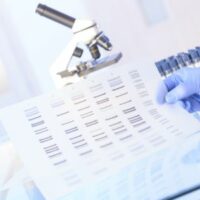Can A Paternity Test Be Incorrect?

Yes, while paternity tests are reliable and correct most of the time, sometimes they can be wrong. The same can be said about most other tests, as no test can be 100% accurate. A paternity test can be wrong due to human error, mistakes made while collecting the DNA, and other factors.
If you believe that your paternity test produced an incorrect result, do not hesitate to speak with an attorney to discuss your options.
When Can a Paternity Test Be Incorrect?
Paternity tests are designed to examine a man’s DNA to determine if he is biologically related to the child. When the man shares a significant amount of the child’s DNA, the results of the paternity test can be used to establish paternity.
While paternity tests are very reliable, it is possible that the test may show a false negative or false positive result due to errors.
Reasons a Paternity Test Can Be Wrong
There are several reasons a paternity test could be wrong. A paternity test could show an incorrect result due to:
- Errors made while collecting the DNA. While collecting the DNA is a relatively easy and quick procedure nowadays, mistakes can be made when the sample collector fails to follow all the rules and procedures. Typically, DNA is collected by rubbing a swab on the inside of the cheek. A paternity test could be incorrect if the swab or container is contaminated or the sample is not stored correctly.
- Errors made in the laboratory. Errors in the lab could also impact the results of the paternity test. For example, DNA samples could be mixed up, or the lab workers could fail to store the samples correctly. Any mistake could produce a false positive or negative reading.
- Tampering or fraud. Unfortunately, fraud is not uncommon in paternity testing. The samples of your DNA may be tampered with to force a false positive or negative result.
- Not enough markers tested. A person may share close to 100% of DNA with other people, even those who are not related to them. That’s because there are different markers of DNA. For this reason, it is important to test as many markers as possible to look for the most accurate result.
- The man and the child are related (even though he is not the father). This one is less common than the above-mentioned factors, but its possibility should not be ruled out. The man may be related to the child if the man is a relative of the biological father (for example, they are brothers).
- Defective DNA test kit. While it is rare, the DNA test kit or its components could be defective. As a result, the defect may show an incorrect result.
Contact an Orlando Paternity Attorney
If you believe that the results of your paternity test are erroneous or incorrect, you may have a right to dispute the accuracy of the test. It is advisable to speak with a knowledgeable attorney to understand your options. Contact our Orlando paternity attorney Steve W. Marsee to discuss your particular case. Call 407-521-7171.
